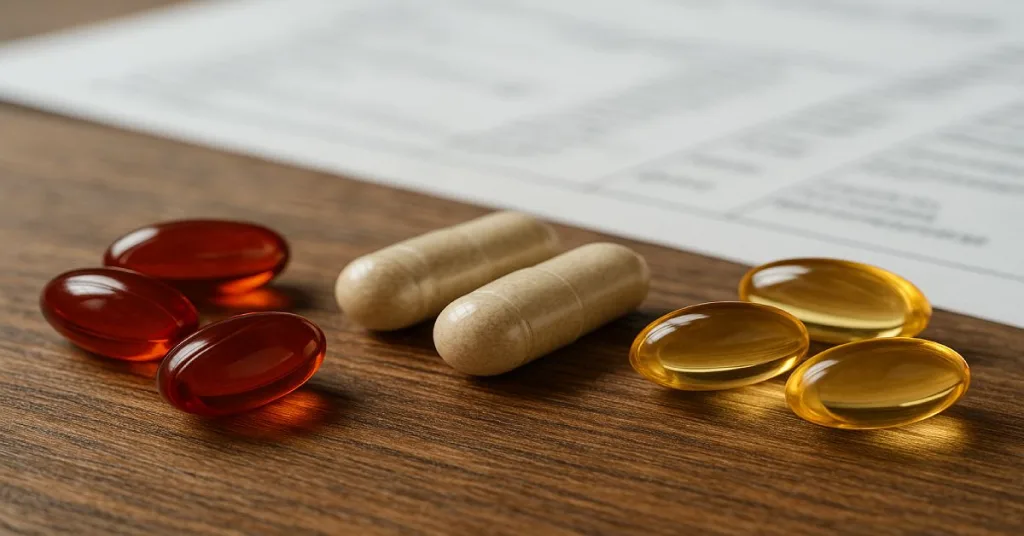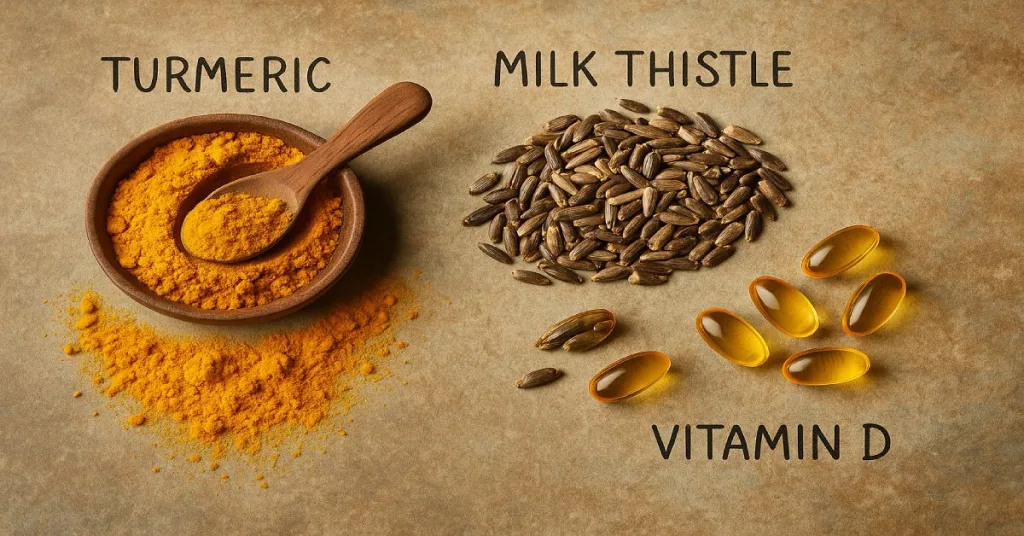The pharmaceutical industry is worth over $1.5 trillion worldwide. In the United States alone, prescription drugs account for hundreds of billions in revenue each year. It’s a business model that depends on one thing: keeping people dependent on pills, often for life.
What doesn’t fit into that model? Supplements and nutrients that actually improve health, often without the need for a prescription. These natural compounds are usually unpatentable, inexpensive, and widely available. That makes them a threat to Big Pharma’s monopoly.
Over the years, some of these supplements have faced smear campaigns, regulatory crackdowns, or outright attempts at removal from the market. Yet they persist because the science behind them — and the results real people experience — are too strong to ignore.
Below, we’ll break down 9 supplements Big Pharma hates the most: what they are, why they matter, and the research that backs them.
This post may contain affiliate links. If you click and purchase, I may earn a small commission at no extra cost to you. I only recommend products I personally use or have thoroughly researched.
1. N-Acetyl Cysteine (NAC)
What it is:
NAC is a form of the amino acid cysteine and a precursor to glutathione, the body’s “master antioxidant.” Hospitals use it as a standard treatment for acetaminophen (Tylenol) overdose because it restores glutathione and protects the liver.
Why Big Pharma hates it:
- In 2020, the FDA suddenly claimed NAC should no longer be sold as a supplement because of its prior use as a drug.
- This sparked lawsuits and backlash, since NAC had been sold safely over the counter for decades.
- By 2022, the FDA backed down, issuing “enforcement discretion” guidance that effectively kept NAC on shelves.
Why it helps:
- Supports liver detoxification.
- May reduce inflammation and oxidative stress.
- Studied for respiratory health, mental health, and cardiovascular support.
Typical dosage: 600–1200 mg daily, often in divided doses.

2. Coenzyme Q10 (CoQ10)
What it is:
A vitamin-like compound found in every cell, CoQ10 helps produce energy in the mitochondria. Levels decline with age and certain medications.
Why Big Pharma hates it:
- Statin drugs (cholesterol-lowering medications) deplete CoQ10.
- Instead of telling patients to supplement, drug companies keep quiet — then sell additional medications to manage the fatigue, muscle weakness, and heart problems that follow.
Why it helps:
- Supports heart health and energy production.
- May reduce statin side effects.
- Shown in studies to improve heart function in heart failure patients.
Typical dosage: 100–300 mg daily, usually in softgel form for better absorption.
3. Taurine
What it is:
An amino acid found in the brain, heart, and muscles. Taurine plays a role in electrolyte balance, heart rhythm, and nervous system health.
Why Big Pharma hates it:
- It’s inexpensive, natural, and widely available.
- Studies link taurine to better cardiovascular health, lower blood pressure, and improved energy metabolism — areas dominated by prescription drugs.
Why it helps:
- Supports heart function and reduces strain on the cardiovascular system.
- Improves exercise endurance and recovery.
- May have protective effects on the liver and nervous system.
Typical dosage: 1000–2000 mg daily.
4. Turmeric / Curcumin
What it is:
Turmeric is a spice used for centuries in Ayurvedic medicine. Its active compound, curcumin, is a powerful anti-inflammatory.
Why Big Pharma hates it:
- Chronic inflammation is a gold mine for drug companies — it drives demand for painkillers, arthritis drugs, and immune-suppressing medications.
- A cheap, natural anti-inflammatory threatens that pipeline.
Why it helps:
- Reduces joint pain and stiffness.
- May protect against cognitive decline.
- Supports gut and immune health.
Typical dosage: 500–1500 mg daily of curcumin, ideally with black pepper extract (piperine) for absorption.
5. Milk Thistle (Silymarin)
What it is:
An herbal extract from the milk thistle plant, traditionally used for liver health.
Why Big Pharma hates it:
- The liver is the organ most burdened by prescription drugs.
- A supplement that protects and regenerates liver cells runs directly against Pharma’s dependence on treating liver damage with more medication.
Why it helps:
- Supports detoxification and liver regeneration.
- May help with fatty liver disease and toxin exposure.
- Antioxidant properties benefit overall cellular health.
Typical dosage: 200–400 mg daily, standardized to 70–80% silymarin.
6. Vitamin D
What it is:
A fat-soluble vitamin that functions more like a hormone, regulating immunity, bone health, and mood.
Why Big Pharma hates it:
- During the pandemic, studies repeatedly showed vitamin D status influenced outcomes.
- Instead of promoting it, officials downplayed supplementation in favor of high-profit drugs and vaccines.
Why it helps:
- Strengthens immune defenses.
- Supports bone health and calcium absorption.
- May reduce risk of respiratory infections.
Typical dosage: 1000–5000 IU daily, depending on blood levels and sun exposure.

7. Magnesium
What it is:
A mineral involved in over 300 biochemical reactions in the body, including muscle function, energy production, and nerve signaling.
Why Big Pharma hates it:
- PPIs (proton pump inhibitors for heartburn) deplete magnesium.
- Deficiency contributes to high blood pressure, heart arrhythmias, anxiety, and more — all treated with expensive drugs instead of a simple mineral.
Why it helps:
- Supports healthy blood pressure.
- Improves sleep and relaxation.
- Essential for heart rhythm and muscle function.
Typical dosage: 200–400 mg daily, ideally as magnesium glycinate or citrate for absorption.
8. Omega-3 Fatty Acids (Fish Oil)
What it is:
EPA and DHA, found in fish oil, are essential fatty acids with anti-inflammatory and cardiovascular benefits.
Why Big Pharma hates it:
- Omega-3s compete directly with high-profit drugs for inflammation and heart disease.
- Pharma has tried to patent concentrated omega-3 prescriptions (like Lovaza) at much higher costs.
Why it helps:
- Reduces triglycerides.
- Supports brain and eye health.
- May improve mood and reduce inflammation.
Typical dosage: 1000–3000 mg combined EPA + DHA daily.
9. Probiotics
What it is:
Live beneficial bacteria that support gut health and immune function.
Why Big Pharma hates it:
- Many conditions linked to gut dysbiosis (IBS, anxiety, even obesity) are currently treated with prescriptions.
- Probiotics can often reduce or eliminate symptoms naturally.
Why it helps:
- Improves digestion and reduces bloating.
- Strengthens immune defenses.
- May support mental health through the gut-brain axis.
Typical dosage: Varies by strain, often 10–50 billion CFU daily.
Why These Supplements Face Resistance
Supplements like these share a common trait: they can’t be patented. That means no billion-dollar exclusivity deals, no endless revenue streams, and no government subsidies to prop them up.
Instead, they face:
- Regulatory crackdowns (like NAC).
- Media fear campaigns (“dangerous supplements!”).
- Attempts to create synthetic, patentable versions.
The less people know about these natural options, the more money Big Pharma makes.
How to Use This Information
This isn’t about rejecting all medicine. It’s about understanding your options. Supplements like these can often reduce the need for medication, improve health outcomes, or prevent problems before they start.
Always consult with a healthcare provider before making changes — especially if you’re on prescriptions. But don’t let anyone tell you these natural alternatives “don’t work.” The science says otherwise.
And if you’re curious why the system seems rigged to keep you sick, the answer isn’t just biological — it’s political.
👉 Even political commentators are calling out the racket. See this breakdown: [Why the Government Wants You Sick: The Politics of Big Pharma and Fake Health](Rant Signal link).
Final Word
Big Pharma doesn’t want competition. And supplements are competition — cheap, effective, and empowering.
That’s why they’ve tried to discredit, restrict, or quietly absorb them into the system. But the truth is out there, and more people every day are learning that natural options work.
Take charge of your health. Research the supplements that fit your needs. And don’t let anyone convince you that the only path to wellness is a lifetime of prescriptions.
see also: 5 Supplements That Actually Help With Nerve Pain (Backed by Science)